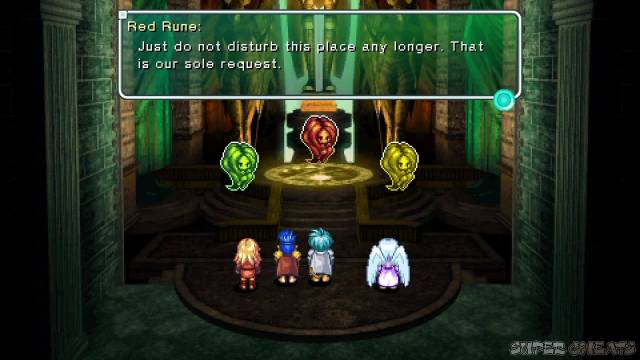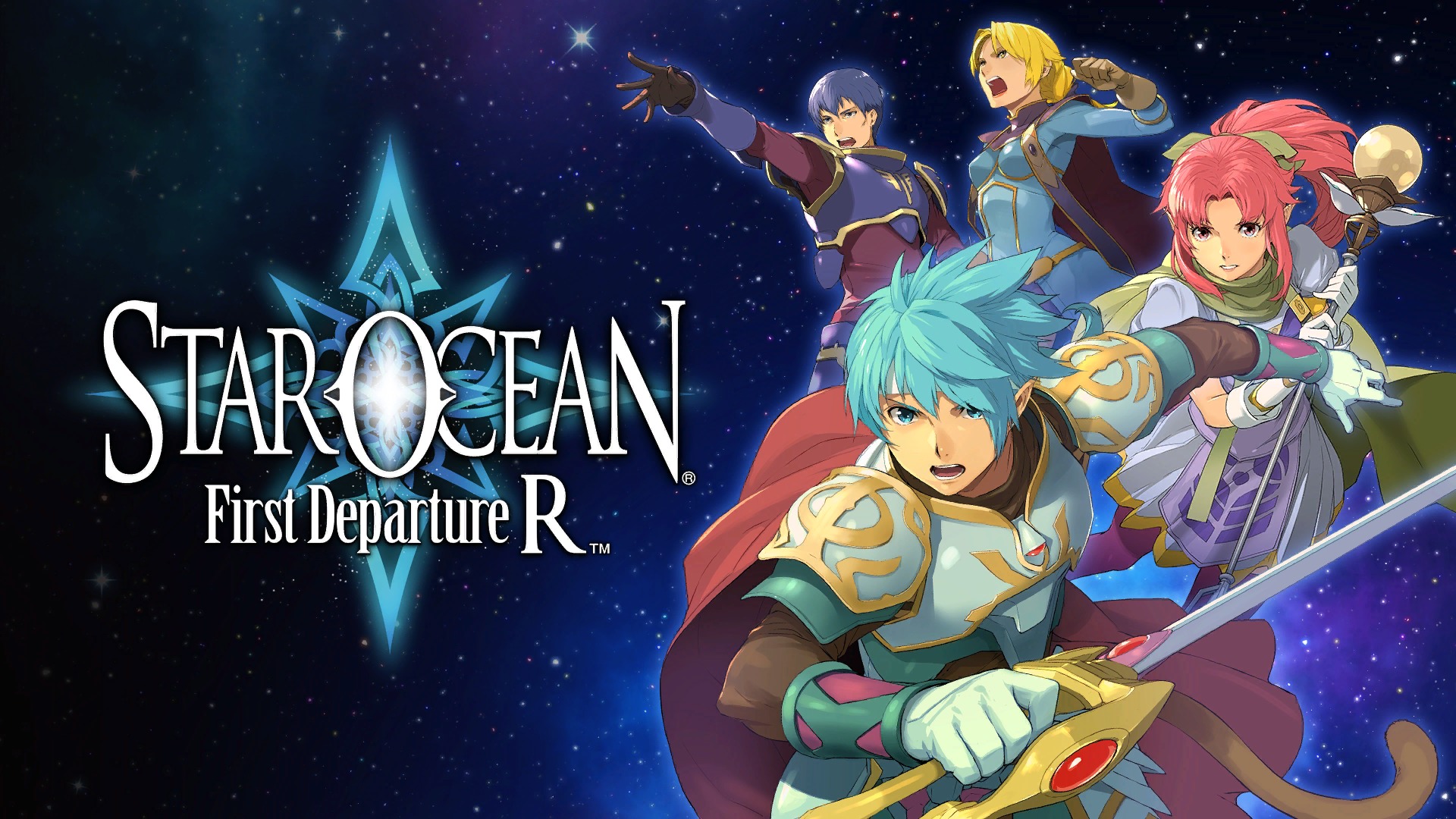
This is doubly true given how frequently random encounters occur.

Each character can have up to two special abilities to go with their standard attack, and of course there’s all the magic and items that are standard for the genre, but people who are used to Bandai Namco’s Tales series, or anything of Tri-Ace’s later work, will likely feel that this game’s combat system is limited. Combat is action-based and, coming from the SNES era as it did, can be quite button-mashy. Star Ocean does go some dark places, but the wit and charm that persists through the narrative helps to keep it on the light side of things. Each of the cast have a distinctive personality as well, and they all bounce off one another well – it’s possible to split the party up when exploring towns and end up having all kinds of interactions by then bumping into your buddies while they’re enjoying the downtime. Every town and city has at least one or two eccentric weirdos to interact with, and there are frequent lampoons of popular elements and traditions of other JRPGs scattered throughout the world. Which is, when you think about it, a very Japanese way of looking at things.Īs it was originally a SNES title, the storytelling in First Departure R is clean and to the point, but it’s also very funny, very frequently. Star Ocean 1 is no different, and while none of these games are preachy or take sides, it’s clear that the developers see balancing role between both science and spirituality as ultimately healthy for a community. It’s a similar debate that is a common thread across Star Trek, and indeed both Star Ocean and Star Trek share a similar “rule” whereby advanced civilizations are meant to leave fledgling and underdeveloped civilizations alone. religious) cultures are presented as perhaps less ignorant and unenlightened than the advanced communities might assume. In each title, in some way or another, there’s some kind of challenge to the idea that the supposedly enlightened, advanced cultures are an inherent righteous good, while the less advanced, “superstitious” (i.e.
#Star ocean first departure r world map series
One of the things I have consistently loved about this series is the theological debate that becomes a running theme through it.

On the surface each Star Ocean title plays out like a space opera, with highly advanced people from across the galaxy clashing with one another, and typically people from less advanced civilizations being caught in the cross-fire. In that context I was immediately enthralled by what was effectively a “new” Star Ocean experience for me. I got into the series with Star Ocean 3 on PlayStation 2, fell in love with Reimi… I mean the series… with Star Ocean 4 on the PlayStation 3, and was one of the very few that genuinely enjoyed the PlayStation 4’s Integrity and Faithlessness (no, really, here’s the 4/5 review to prove it).
#Star ocean first departure r world map psp
As far as I know, the original SNES Star Ocean was never released in Australia, and the PSP remaster was a UMD-only release and I – who only got into the PSP via the UMD-free PSP Go – never had the opportunity to play that version either.

I had never played the original Star Ocean prior to this port of the PSP remaster. Related reading: My review and video looking at Star Ocean 4 remastered on PlayStation 4


 0 kommentar(er)
0 kommentar(er)
